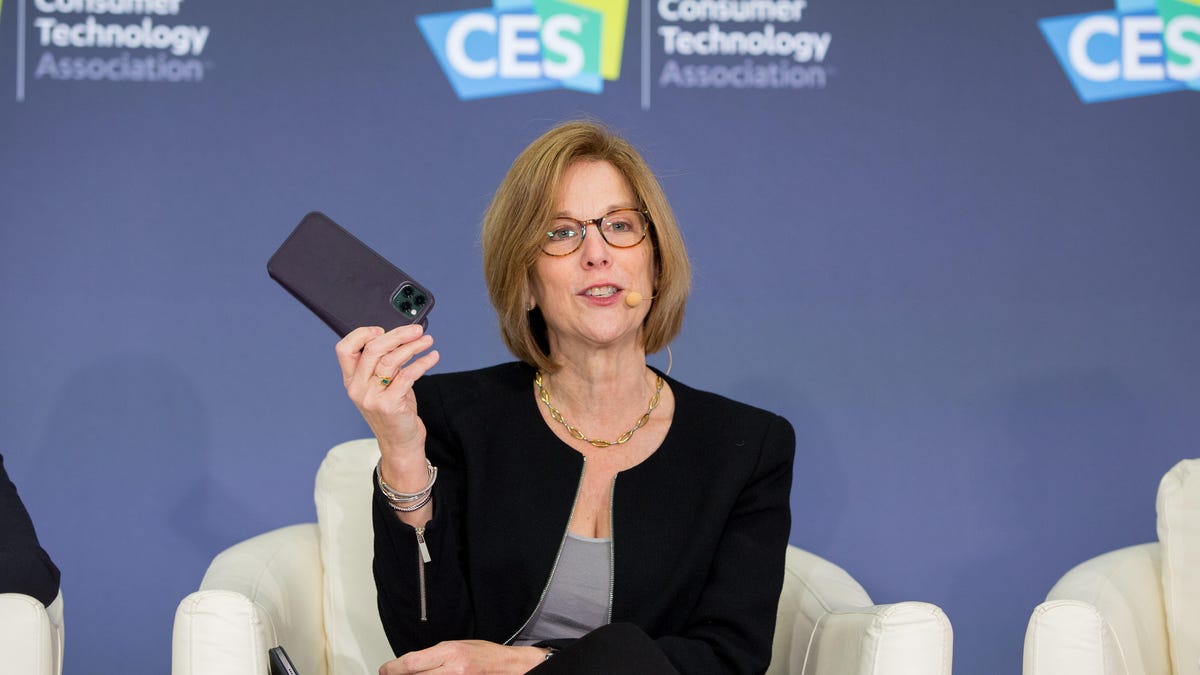Apple and Facebook feud over who's violating your privacy more
Apple's privacy chief is accusing Facebook of collecting "as much data as possible."

Apple's Jane Horvath calls out Facebook for its data privacy mishandlings.
A letter from Apple's privacy chief on Thursday kicked off the company's latest clash with Facebook, with both tech giants accusing each other of failing to protect your data properly. As Apple takes a stance on privacy as one of its core marketing values, Facebook and its advertisers have been adjusting for the fallout.
In a letter to advocates from organizations like the Electronic Frontier Foundation, Human Rights Watch and the Open Technology Institute, Apple's privacy chief, Jane Horvath, called out Facebook for its data collection practices, arguing the company doesn't care about people's privacy.
"Facebook executives have made it clear their intent is to collect as much data as possible across both first- and third-party products to develop and monetize detailed profiles of their users, and this disregard for user privacy continues to expand to include more of their products," Horvath said.
The letter was a response to an Oct. 7 call for Apple to implement its anti-tracking measures introduced in June sooner.
Today we sent a letter to @Apple CEO Tim Cook pushing him to implement the iOS 14 anti-tracking measures without further delay. The roll-out could position Apple as a standard-setter, but until it happens, iOS users will still be vulnerable to tracking: https://t.co/ndDmc316PD pic.twitter.com/qeG5OUlUs2
— Ranking Digital Rights (@rankingrights) October 7, 2020
At Apple's Worldwide Developers Conference, Apple announced several new privacy updates for iOS, including a feature called App Tracking Transparency that would require people to give permission for apps to take their data rather than having it handed over by default.
The update threatened to uproot several ad-tracking features in apps, including Facebook. The company warned in a blog post in August that the update would mean less profit for advertisers because of less effective tracking.
In September, Apple decided to delay the feature's rollout to 2021 so developers could have more time to make necessary changes.
"We developed [App Tracking Transparency] for a single reason: because we share your concerns about users being tracked without their consent and the bundling and reselling of data by advertising networks and data brokers," Horvath said in the Nov. 19 letter.
Facebook isn't buying Apple's explanation.
In its response to Apple's letter, Facebook is accusing Apple of using data privacy as a cover for market dominance in the advertising world. That accusation doesn't just come from Silicon Valley. During a hearing on tech monopolies in July, lawmakers also criticized Apple for using privacy as an argument to hurt competitors.
"They are using their dominant market position to self-preference their own data collection while making it nearly impossible for their competitors to use the same data," Facebook said in a statement. "They claim it's about privacy, but it's about profit."
Apple is projected to make up to $11 billion in advertising by 2025, though its core revenue still comes from its App Store and devices. Google also allegedly pays Apple $8 billion to $12 billion to be the default search engine on iPhones, as a huge benefit to the advertising giant.
Apple collects data on its iOS users through an identifier called IDFA, which creates a unique ID for your device for advertisers. Third-party trackers like Facebook can use this to target ads based on your browsing activity, which is why it can sometimes feel like tech giants are listening in on your conversations.
Advocates argue that Apple's IDFA violates privacy rights, and organizations like Mozilla called on Apple to reset the identifiers every month by default to limit tracking.
App Tracking Transparency essentially guts IDFA, since ad trackers now will have to get permission every time they want to get your data on apps. Studies show that the majority of users don't change their privacy settings, so what you get by default is what most people will experience.
Apps were taking millions of people's information by default, and will now need consent to do it, threatening the business model for advertising companies.
Facebook argued that Apple's track record on privacy isn't perfect either -- pointing at vulnerabilities it's experienced like a FaceTime flaw that allowed people to listen in on conversations even when the recipient hasn't picked up the call yet.
Facebook Messenger recently patched a similar vulnerability through its bug bounty program.
At CES in January, Apple's Horvath and Facebook privacy chief Erin Egan spoke on a panel on data privacy. The message from Facebook during the panel was that the social network was just as good at protecting privacy as Apple was.
In Facebook's response to Apple's letter on Thursday, the social network had a similar argument: Apple is just as bad as everyone else.
"They enforced against our internal business apps to change the topic," Facebook said in its statement. "Sadly, we're not perfect and it worked."

